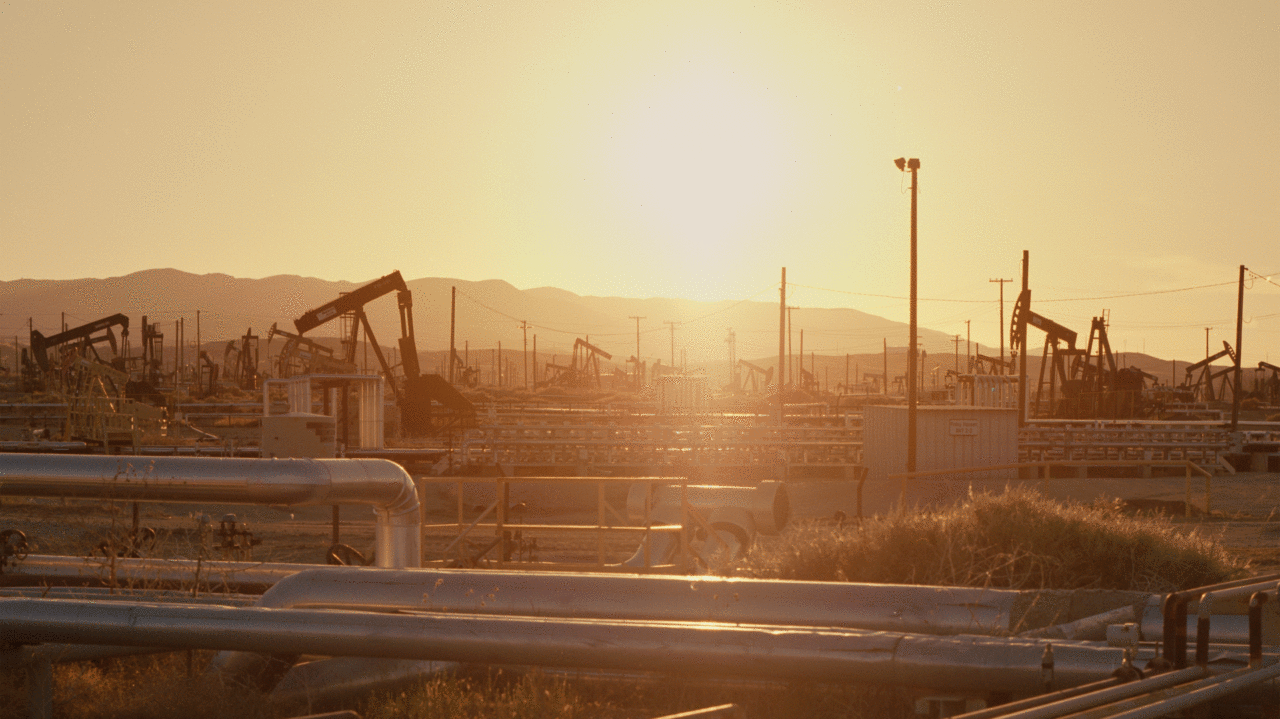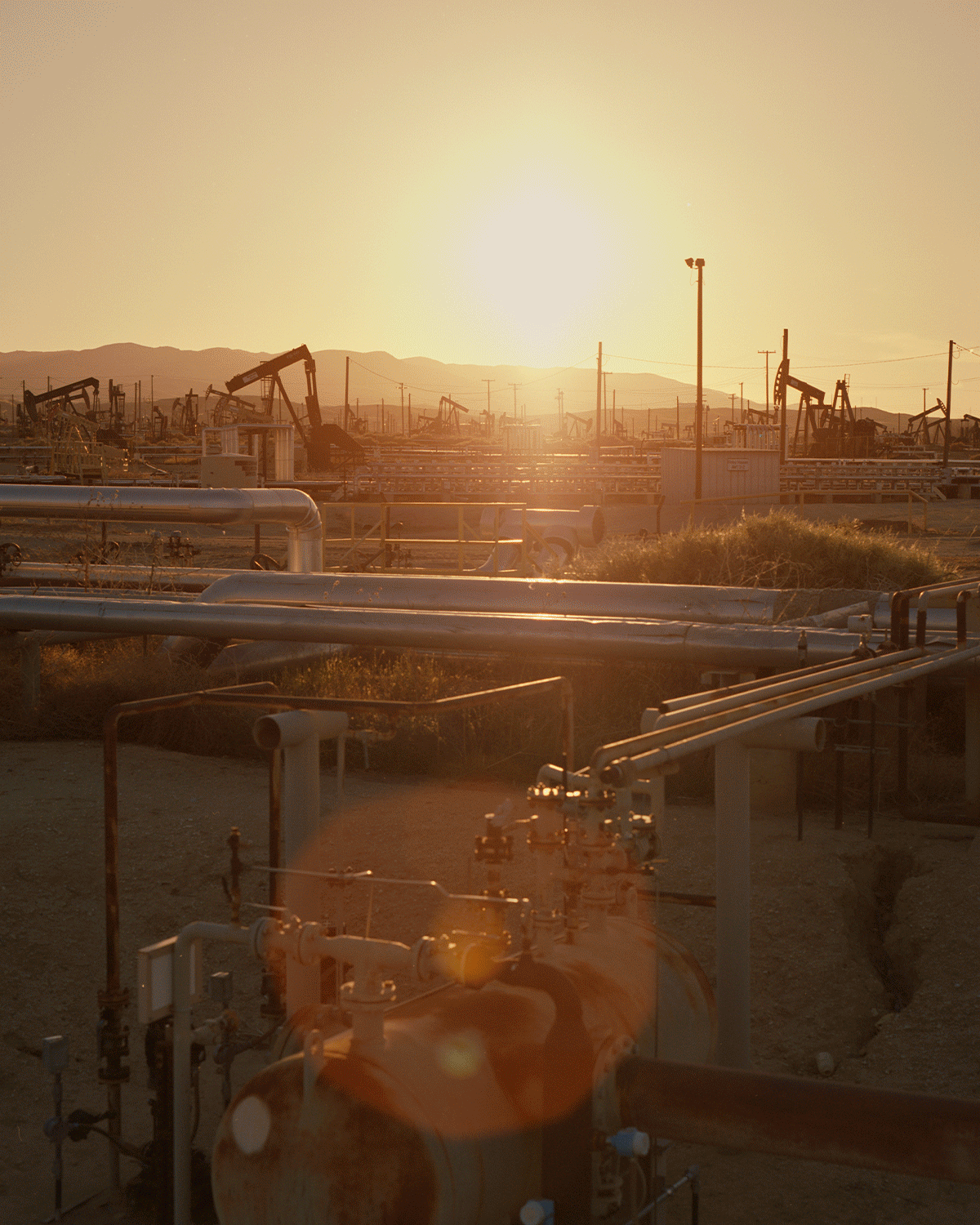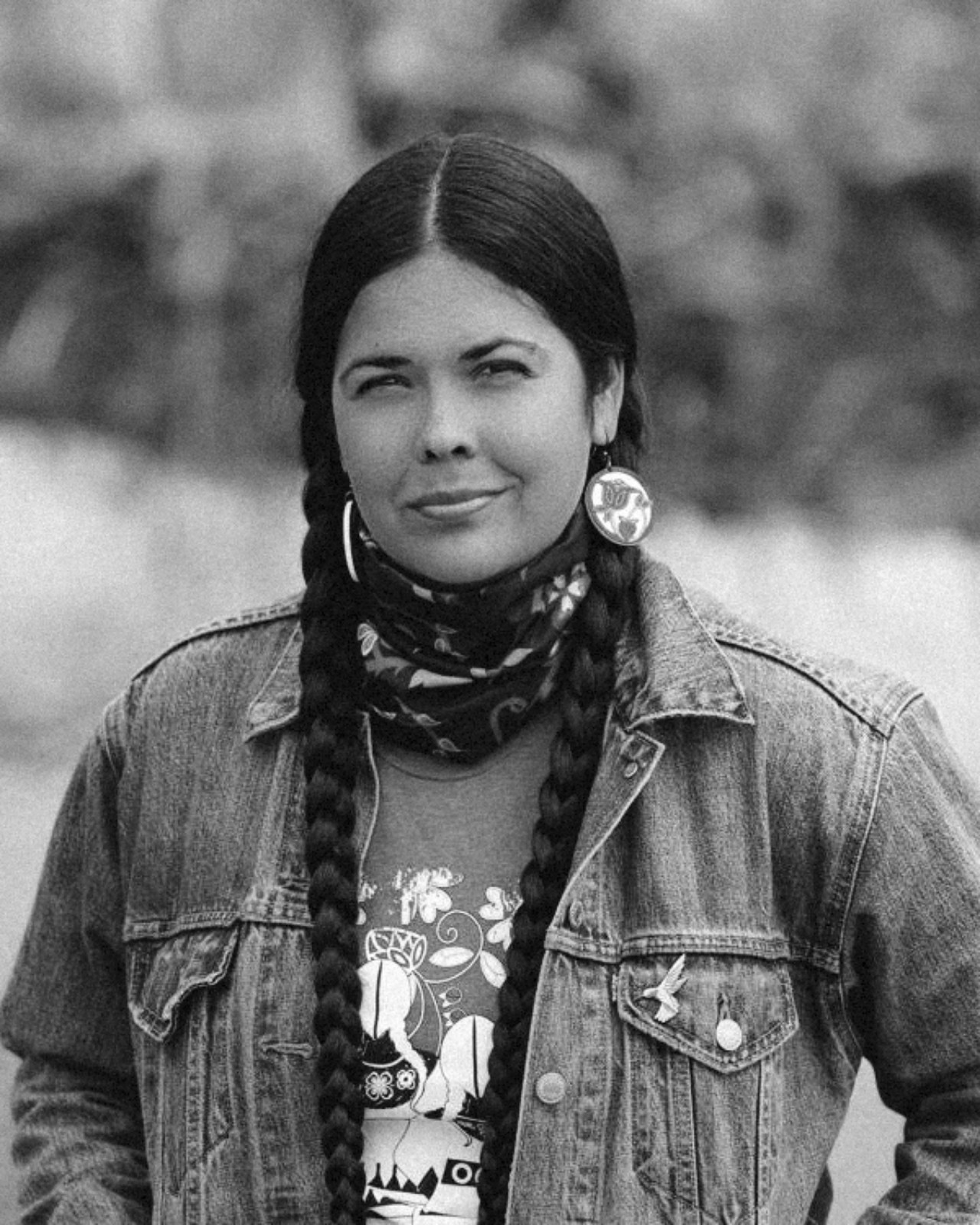

WORDS BY YESSENIA FUNES
illustration by Ásta Thrastardóttir
Donald Trump will be marching back into the White House today. Against the backdrop of the raging and deadly Los Angeles wildfires, his proposed environmental policies feel especially alarming.
Trump has pledged to withdraw the United States from the international Paris Agreement, expand gas exports, and stymie clean energy markets. Climate experts are now fortifying against a second Trump presidency that could be worse than the first, but we’ve been here before. And climate experts know what to expect. They also have valuable lessons to share from their first time going toe-to-toe with the new commander-in-chief.
The climate emergency is no longer in the rear-view mirror: It’s at our front door. The climate crisis in 2024 was responsible for an estimated 11,500 deaths, according to the International Disaster Database. The people experiencing extreme weather, housing crises, and displacement have lost enough. Across the country, climate workers are gearing up for the fight of a generation. Many will shift their priorities to local efforts where they expect to have the most impact. Some will turn to controversial tactics, such as civil disobedience, to protect their communities at whatever cost necessary. Others will zero in on taking Trump to court.
I asked several movement makers from across the U.S. to share their plans for staying the course—and wisdom to keep us inspired and optimistic—on the long road ahead. Here’s how they view this essential work, in their own words.
These statements have been lightly edited and condensed for clarity.

Wildfires rage through California at this very moment. People have died. Thousands of homes have been destroyed, and hundreds of thousands of folks are without power. These next several years will determine the future of our planet: Will we have the decency to prevent our planet from burning to the ground? If federal governance removes environmental protections and fails to reduce carbon emissions, then it’s up to us to mobilize and organize. Local organizing will be essential this year, and putting pressure on global policy is more important than ever. We have no time left to waste.
The Southeast is facing an overwhelming push for methane gas to replace our aging coal supply. We’ll be advocating for creative solutions and innovations in solar, wind, and battery storage to reduce our region’s high energy burden.
Even though the federal atmosphere will be hostile to climate advocacy, we will work closely with Black, Indigenous, and communities of color to connect them to resources from the Inflation Reduction Act. Federal grants and rebates made possible under President Joe Biden are game changers, providing access to renewable energy and home repairs that will improve lives and lower bills. We’ll meet people where they are, offering one-on-one support to eliminate the barriers and confusion around government programs.
In the face of hostility, we as a community must connect climate to people’s daily lives so they see value and feel valued. We must use our resources to challenge the belief that fossil fuels are essential for our future while helping the most vulnerable lower their bills and access safe, clean, and reliable energy.
Trump’s victory was a major setback for our movement. It was also a victory for Big Oil and its backers. Over the next four years, our Climate Defenders project will focus on protecting our people, migrants, and the planet. We will organize and build power among the most vulnerable communities: Black, Brown, and migrant communities that will face the brunt of this administration. Climate destruction, migration, and economic inequality are intertwined, and we will develop leaders who can organize and speak to those intersections while building toward moments of mass disruption. That includes building visible, relatable campaigns of sustained nonviolent civil disobedience that target elites and politicians who side with polluters over the well-being of people and the planet.
As Trump’s cronies attempt to destroy climate solutions, we demand accountability from across the political spectrum. Many progressive politicians have the power to make meaningful progress at the state level, and we join others in demanding that they leave behind a losing pro-fracking strategy and, instead, take clear, decisive action on ending fossil fuel projects, making polluters pay, and protecting immigrants. This moment is an opportunity to rebuild the climate movement into one that is pro-migrant and working class.

Indigenous peoples have experienced the bellwether of American politics since America began: the swing from dehumanized savage to romanticized, appropriated novelty; from balanced lifeways to obliteration of nature and one another; from brutal mass extermination and enslavement to civil rights; from the progress we’ve made to the ongoing swing backward.
Indigenous peoples hold teachings of our individual roles in community. We each carry unique gifts and walk in mutuality with all living beings. We were born at this time for a reason and with a purpose. We must find our way to that purpose. We have done this before. We can and must do it again. For our hearts, for our humanity, for our place in the web of life.
Our existence is resistance. Our solidarity is our survival.
“Our existence is resistance. Our solidarity is our survival.”
Trump’s plans read like a poorly crafted dystopian novel. This destructive blueprint is marked by reckless abandonment of the protections that safeguard our air, water, and ecosystems, leaving a nagging sense of uncertainty about the future of our planet and our most vulnerable communities.
The real problem is not just the change in policy—it’s how little time we have left. Under the Biden administration, we were already in a race against the clock. Now, with deregulation and denial taking over, that clock is ticking even faster. These rollbacks aren’t just political decisions—they’re putting profits ahead of the planet, ignoring the rising seas, worsening storms, and devastating wildfires we see all around us. The crisis hasn’t paused, but the leadership to face it has.
Our task at this tipping point is straightforward: Mobilize locally to protect what national leaders will not. We will organize communities to transition to renewable energy, push corporations to decarbonize, encourage philanthropic organizations to commit to more substantial investments to protect clean air and water, and demand climate reparations for those already bearing the brunt of the crisis. We need to focus on preserving ecosystems, protecting vulnerable communities, and empowering youth activists to carry this fight forward.
The collective histories of justice movements in America remind us that hope lies in resistance. Movements are built in moments of challenge, and history proves change comes not from leaders but from people who refuse to give up. This is our moment to rise, to rebuild a future where the Earth and its people can thrive. In the prophetic words of Dr. Martin Luther King Jr., “The time is always right to do what’s right.”

The fight for environmental and climate justice will face serious challenges under the new administration. But many of us have overcome tougher challenges in our lifetimes, and our movement is ready for this one.
It is important to remember that our resilience during the first Trump presidency saw the movement rebound to become stronger than ever. It laid the groundwork for the Biden-Harris administration’s Justice40 initiative and unprecedented funding from the Inflation Reduction Act and the Bipartisan Infrastructure Law. And we were able to eventually restore nearly all of Trump’s environmental policy and regulation rollbacks.
Just as we did before, we will continue to resist on all fronts. We will work with our allies to track and defend every rule and regulation they attempt to roll back. We will aggressively pursue state legislation and help others do the same. And we will work together to publicly—and, whenever possible, legally—hold the next administration accountable for the damage it does to our environment and our communities.
Those of us in the environmental justice movement understand the joy of resistance. We can and will be part of the solution. We’ve dug in and are prepared to give them the fight of their lives. We won’t go back!
For the past four years, I focused on pushing President Biden to declare a climate emergency to phase out fossil fuels and establish resilient clean energy for communities suffering the most from our dirty, racist energy system. Now, I’m turning to defend against Trump’s likely declaration of false energy emergencies—a farcical abuse of presidential powers to drill for more oil and gas.
But real climate action neither starts nor stops at the federal level. State and local action is where meaningful change will blossom. That’s why, in December, we supported the North Carolina town of Carrboro in bringing the country’s first-ever climate deception lawsuit against Duke Energy, an electric utility that is the nation’s third-largest corporate polluter.
Corporate utilities profoundly hurt our communities and planet. They build more polluting gas plants, block families from getting community solar, relentlessly raise rates, and punish poor households by shutting off power during climate-driven heat waves and freezes. They also helped set the climate stage for the LA fires and similar catastrophes.
The next four years will be dedicated to using tools at the state level to take these utilities on—and to building local people power to turn our climate and democracy crises around.
“In this next political moment, our work is to get good at organizing our message and our messengers for a future that will surely look different than the past.”
The LandBack movement is a movement for the liberation of Indigenous peoples and our lands. This movement is the Red Power Movement of the current generation. It is key to fighting an authoritarian state because it holds a mirror up to this country. We cannot continue a path of erasure, racism, and destruction. The history of U.S. settler colonialism has created deep institutions of oppression and white supremacy throughout society.
The U.S. is destined to repeat history if it doesn’t right historical wrongs. The only way to fight authoritarianism is to build a multiracial democracy. For Indigenous peoples, that means building a democracy where we are visible.
Indigenous peoples are 4% of the U.S. population, and a multiracial democracy is not possible without us. And Indigenous peoples will not participate without LandBack. We have survived the invasion of our homelands, forced assimilation, and the American genocide. Our lived experience positions us very well to fight an authoritarian state.
The lessons from our resistance—and healing—will be invaluable in this historic moment.

We are doing the work we always do.
I am using every tool in our toolkit to support the environmental community—of workers, doers, and stewards—in the short and long term. I’m staying present and plugged in and encouraging empathy and solidarity with the most vulnerable. Folks who are committed to the people and planet are clear that the work is neither political nor ceasing. We care for trees, waterways, soil, and species not because they are luxuries, but because they are life. We advocate for responsible use of precious resources because it is right, not because it’s trendy. And we are gearing up for more of the same.
Organizers are a crucial part of how we will win. They are literally dealing with issues of life and death. Organizers are a necessary part of converting demands into policies. Organizers, campaigners, and advocates unlock access to public resources so that those dollars reach folks who need them. Organizing around a livable future is the first step to demand politics that serve people rather than polluters. Win, lose, or draw, we are focused on raising the collective appetite for change in people’s everyday lives and livelihoods.
Everything is different this time around, including the emotional and psychological capacity of everyone involved. We are doing essential work at a time when our planet is in distress, whether that shows up as melting ice, flash floods, or wildfires.
Our organizing continues to be about big ideas and making change—every day. But the messaging has to get better. In this next political moment, our work is to get good at organizing our message and our messengers for a future that will surely look different than the past.
Advice From Climate Experts as Trump Is Sworn In



